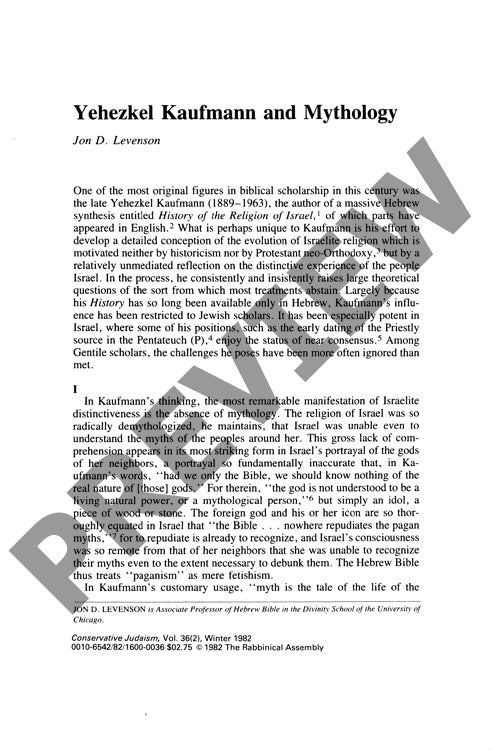Yehezkel Kaufmann and Mythology
Couldn't load pickup availability
Ancient Israel's portrayal of foreign religions as mere idol worship has long been misinterpreted as evidence that Israelites simply could not comprehend neighboring mythological systems. Yehezkel Kaufmann famously argued that Israel's religion was so thoroughly demythologized that it reduced foreign gods to fetishism out of genuine incomprehension. Yet close analysis of biblical texts and comparative religious practices reveals a more complex reality: Israel's reductionist depictions of foreign deities actually stemmed from intimate familiarity with neighboring mythologies and served as a defensive strategy to maintain religious distinctiveness. Through examination of Hebrew Bible passages, interreligious polemic patterns, and both traditional and phenomenological definitions of myth, evidence emerges of widespread syncretism, subtle polemics against foreign myths, and persistent mythological elements in Israelite kingship and creation narratives. Rather than representing complete demythologization, Israelite religion operated through a dynamic tension where mythological elements coexisted with historical consciousness, as purist theology worked to restrict but not eliminate mythic influences. This reinterpretation carries significant implications for understanding both the development of monotheism and the complex relationship between myth and history in ancient Israel.

More Information
-
Physical Description
-
Publication Information
Published 1982-1983
ISBN
-
Publication Credits
Jon Levenson

